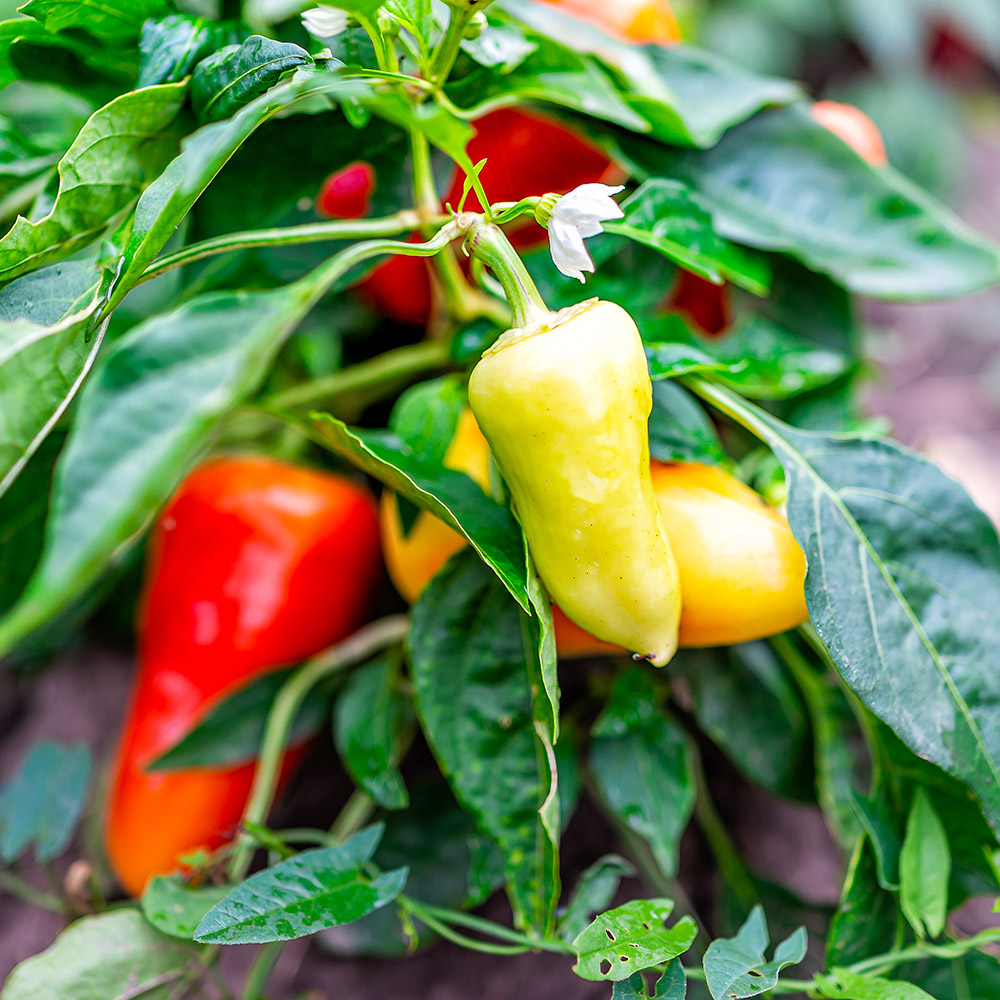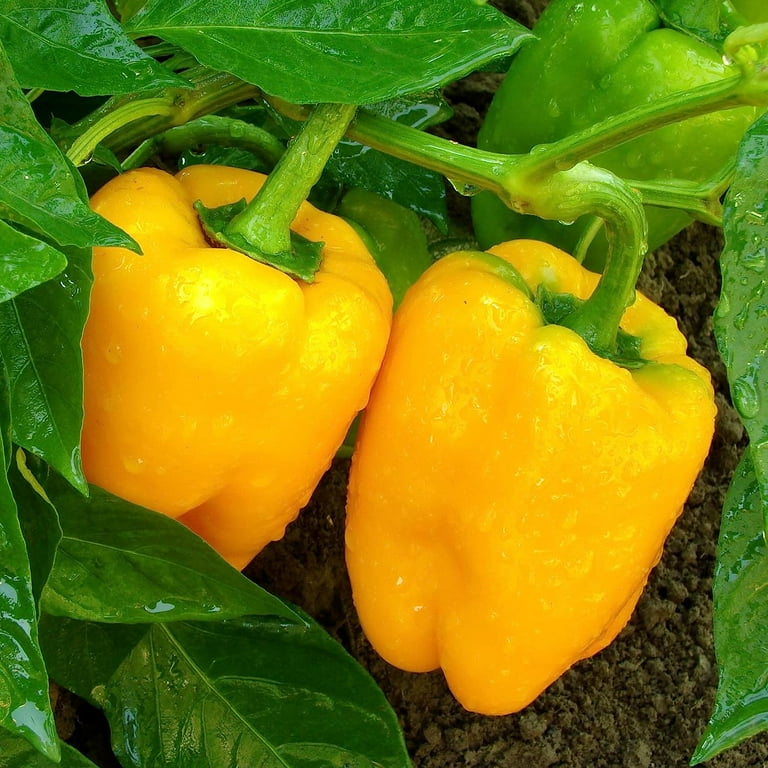How Plant Foods Play a Critical Function in Growing Healthy And Balanced and Plentiful Pepper Crops
Plant foods function as the backbone of successful pepper farming, supplying a critical strategy to nurturing the soil and fostering optimal plant development. The complex dance between necessary nutrients and the pepper plants' physical procedures highlights the essential role that plant foods play in making certain a bountiful harvest. From fueling durable origin growth to bolstering disease resistance, the effect of plant foods is far-ranging in the farming of healthy and fruitful pepper plants. Stay tuned to discover the nuanced methods which fertilizers add to the prospering of pepper plants and the lasting methods that underpin their efficiency.
Importance of Nutrient-Rich Plant Foods
The usage of nutrient-rich plant foods plays a pivotal duty in enhancing the performance and high quality of pepper crops in modern-day agricultural practices. Potassium, nitrogen, and phosphorus are main nutrients that are important for the growth and growth of pepper plants.
Poor degrees of these nutrients can lead to stunted development, reduced returns, and sensitivity to diseases (best fertilizers for peppers). Nutrient-rich plant foods provide a targeted service to make certain that pepper plants receive the needed elements for optimum growth and productivity. In addition, these fertilizers help improve soil fertility over time, developing a sustainable setting for long-lasting pepper growing
Enhancing Plant Growth and Advancement
To optimize plant development and advancement in pepper plants, calculated application of nutrient-rich fertilizers is crucial. Fertilizers play a critical function in enhancing the general health and performance of pepper plants by offering them with crucial nutrients that may be doing not have in the dirt.
Along with these macronutrients, trace elements such as magnesium, zinc, and iron are likewise vital for the correct functioning of numerous plant processes. Iron, for example, is essential for chlorophyll production, which is important for photosynthesis and total plant growth. Zinc plays a crucial function in enzyme task and hormone synthesis, influencing plant growth and growth at a cellular level. Magnesium is important for the formation of chlorophyll and general energy transfer within the plant.

Boosting Illness Resistance With Fertilizers
By purposefully including targeted fertilizers, farmers can bolster the condition resistance of pepper plants, guaranteeing ideal plant health and wellness and efficiency. Fertilizers consisting of necessary nutrients like potassium, nitrogen, and phosphorus play a vital role in enhancing pepper plants' body immune systems, making them extra durable to different diseases. Nitrogen, for circumstances, help in the manufacturing of proteins that are essential for plant defense systems. Phosphorus adds to root advancement, enabling plants to much better soak up nutrients and water, thus improving their ability to fend off illness. Potassium manages processes that boost overall plant health and wellness, making peppers a lot more robust against microorganisms.

Taking Full Advantage Of Pepper Yield Through Fertilizing
Making use of a well balanced fertilizing technique is essential to achieving maximum pepper return and making certain ideal crop performance. By giving peppers with the ideal nutrients at the correct time, farmers can significantly boost their return potential. Potassium, phosphorus, and nitrogen are crucial aspects for pepper growth, with nitrogen assisting in leaf and stem growth, phosphorus sustaining root development and blossom development, and potassium promoting total plant health and wellness.
To maximize pepper return, it is vital to perform soil tests to establish existing vitamins and mineral degrees and identify any shortages that require to be dealt with. Based upon these outcomes, farmers can create a tailored fertilization strategy that satisfies the certain requirements of their pepper crops. Furthermore, appropriate fertilizing strategies such as split applications throughout the expanding period can guarantee constant nutrient accessibility for the plants.

Sustainable Plant Food Practices for Peppers
In thinking about lasting plant food methods for peppers, it is crucial to concentrate on long-lasting soil wellness and ecological stewardship in conjunction with maximizing plant productivity. Lasting fertilizer methods aim to boost or preserve soil fertility while decreasing damaging ecological effects. One crucial method is making use of natural plant foods such as compost, manure, or cover crops, which not only supply crucial nutrients to the peppers but additionally contribute to dirt structure and microbial task. These natural alternatives aid develop raw material in the soil, enhancing its capability to keep water and nutrients, thus sustaining long-term plant wellness and resilience.
In click this link addition, precision farming strategies, such as soil testing and targeted nutrient applications, can aid maximize plant food use, guaranteeing that peppers receive the nutrients they require without excess drainage into waterways. This not more information just profits the atmosphere by decreasing air pollution yet likewise conserves expenses for farmers by reducing waste. By adopting lasting fertilizer methods, pepper cultivators can protect the health of their crops, dirt, and bordering ecosystems for future generations.
Final Thought
In conclusion, fertilizers are essential for cultivating healthy and abundant pepper plants. best fertilizers for peppers. They offer required nutrients for plant development and development, increase illness resistance, and make best use of return. By executing lasting fertilizer methods, farmers can ensure the long-lasting wellness of their pepper crops and add to a more effective and environmentally-friendly agricultural system
The detailed dance in between important nutrients and the pepper plants' physical processes highlights the crucial function that fertilizers play in making certain an abundant harvest.To maximize plant development and development in pepper crops, calculated application of nutrient-rich plant foods is essential. Fertilizers play a critical duty in enhancing the overall health and efficiency of pepper plants by supplying them with crucial nutrients that might be doing not have in the dirt.By purposefully incorporating targeted fertilizers, farmers can boost the condition resistance of pepper crops, making sure optimum plant health and efficiency. Plant foods including necessary nutrients like potassium, phosphorus, and nitrogen play an essential function in reinforcing pepper plants' immune systems, making them more resilient to different diseases.